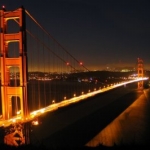
This Thursday, the new documentary My Dad is a Woman explores the emotional affects that can occur when the 'man of the house' transitions to a woman. Following two families, the documentary reveals the challenges faced by two transsexual women as they take life-changing steps that will not only affect their own lives but could impact greatly on their loved ones.
The two women featured in My Dad is a Woman Michelle and Jane, have both been diagnosed with gender dysphoria. Gender dysphoria medical condition where men or women feel their true gender is at odds with their physical body. Michelle had wanted to be a girl since she was six years old, but feared being bullied if she told anyone. So she tried to bury her feelings and get on with living her life as a boy. Michelle met her partner Julie when they were both teenagers and Michelle was known Michael. They have since been married for 26 years and have two sons.
Michelle tried to suppress her feelings for wanting to be a woman but they never went away. Three years ago, once her sons had grown up, she made the ultimate decision that she could finally leave her life as Michael behind and become Michelle.
Although Michelle's parents and her partner have provided brilliant support for her, transition is a huge undertaking and involves various stages which differ for individual transsexuals; whilst some people may just change their appearance and name, others embark on a lengthy process of taking hormones to encourage breast growth, speech therapy to feminise the voice and electrolysis to remove unwanted hair. Then there is the option of gender reassignment surgery to reconstruct areas of the body to become physically more female or male.
My Dad is a Woman also follows 53 year old Jane, who used to be known as John, She began living as a woman more than two years ago. Jane lives in Lincolnshire with her partner Andrea, Jane’s 17 year old daughter Tash, and Jane and Andrea’s six year old son Rafe.
Having a parent who is transitioning brings practical as well emotional challenges.
Jane’s daughter Tash explains the dilemmas she’s faced since her dad broke the news that he wanted to be a woman:
“It’s the last thing you’d think about your parent. For my dad to do it, who I’ve known as a man my whole life, who’s been wearing jeans and jumpers and not really ever showing to me any feminine habits, it was just really strange.
“I’d never suspected it, ever. I was just crying and all shocked. I didn’t tell anyone for about
“I’d never suspected it, ever. I was just crying and all shocked. I didn’t tell anyone for about
four weeks. I didn’t realise but people ended up being quite worried about me."
17 year old Tash continues to explain how, despite the initial shock that her dad wanted to be a woman, she has come to realise that Jane is the same person:
I still call him a him, it’s not that can’t bring myself to say Jane, but…it’s Jane and my dad. Being a dad is a role not a gender. If I keep saying dad, it’s like yes, remember me, I’m here, this is your daughter.”
It is hugely encouraging to see documentaries such as this and My Transsexual Summer on TV. Documentaries like these not only raise awareness of the challenges faced by transsexuals, but they help reduce prejudice by showing viewers that the people featured in the programmes are not alien to the rest of us; they are just people like you and I and they just want to be happy like we do.
My Dad is a Woman airs on Thursday 1st March on ITV1 at 10:35pm.



